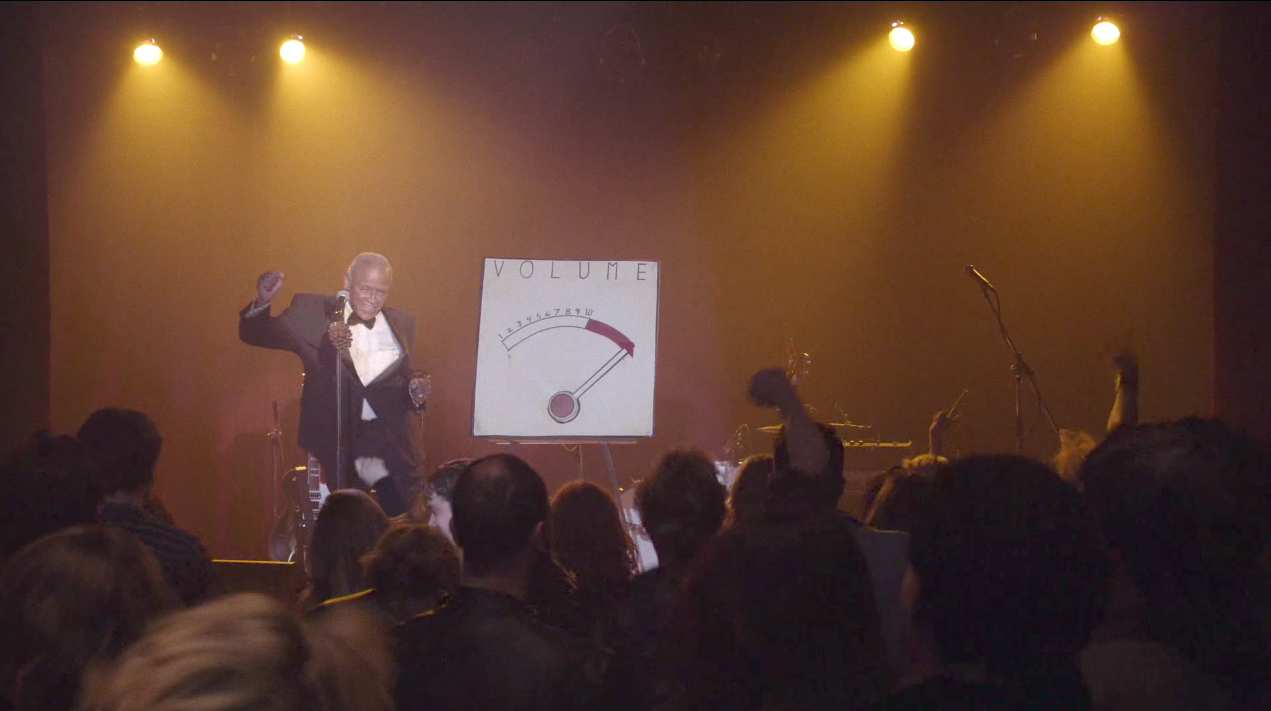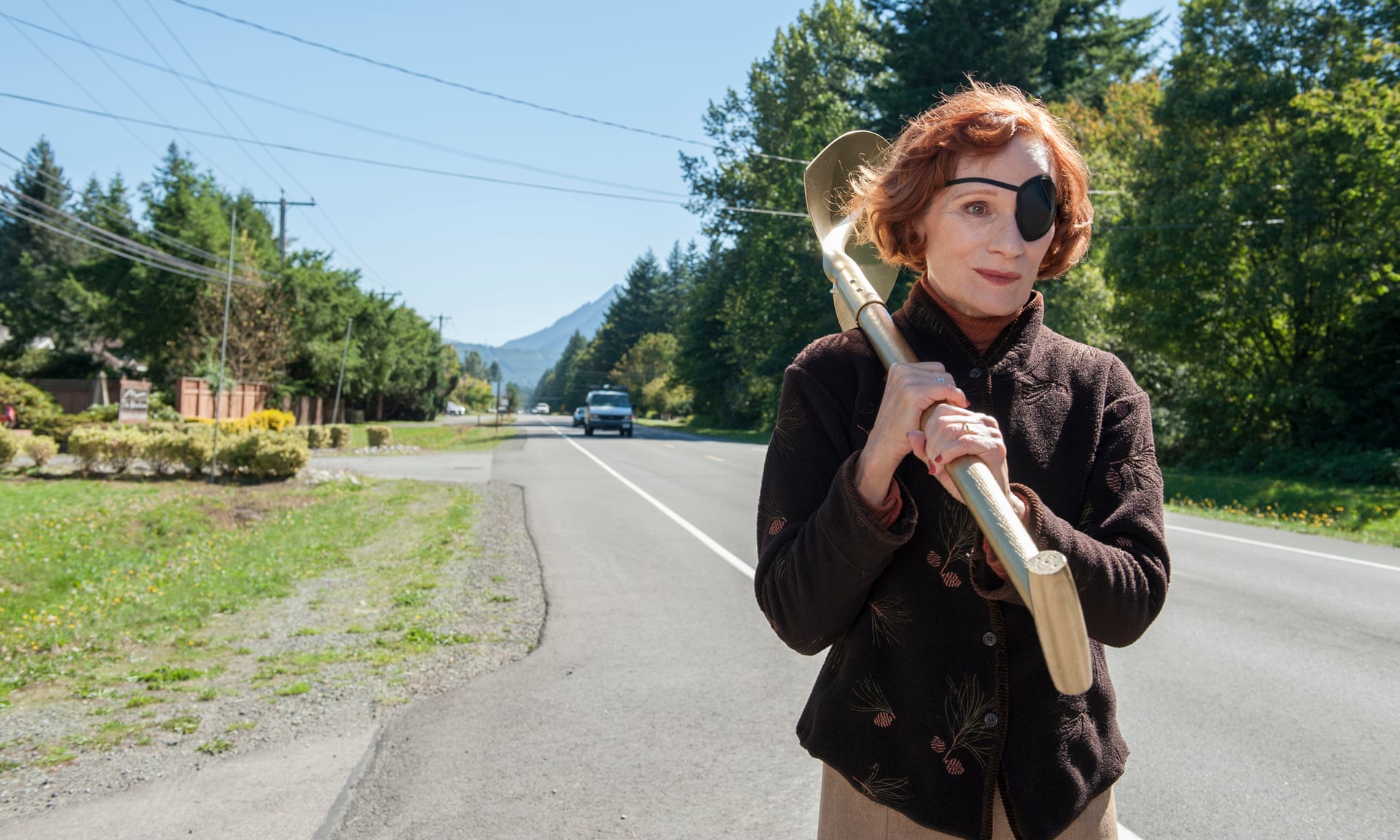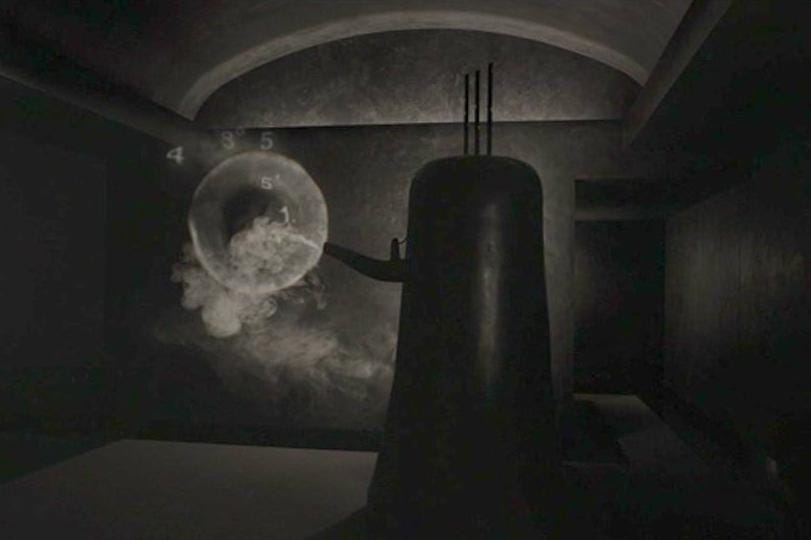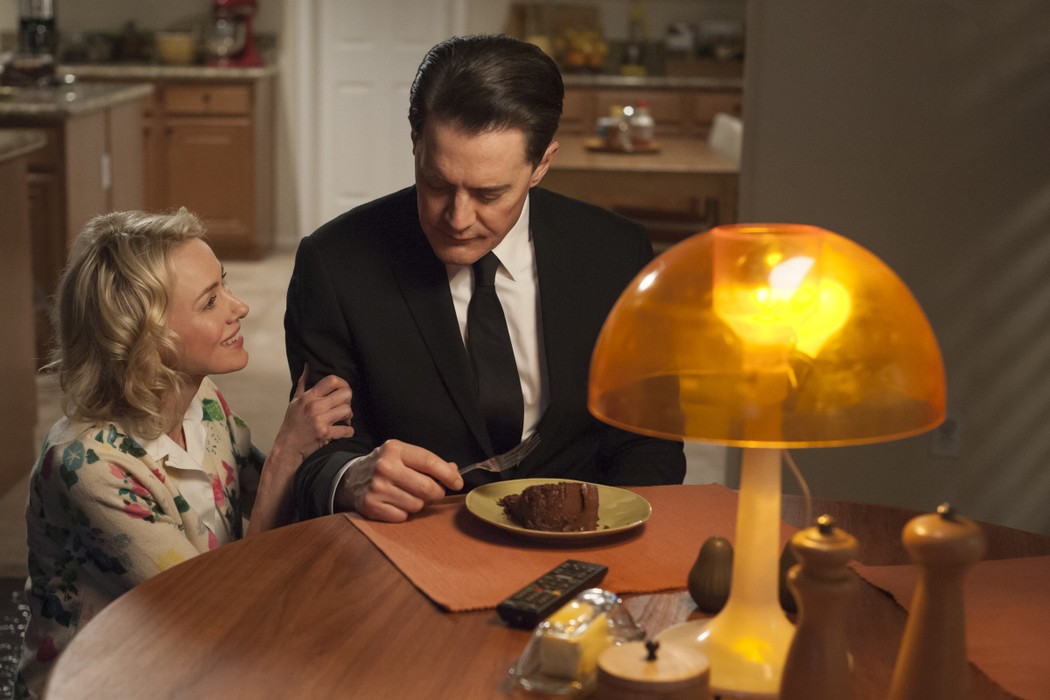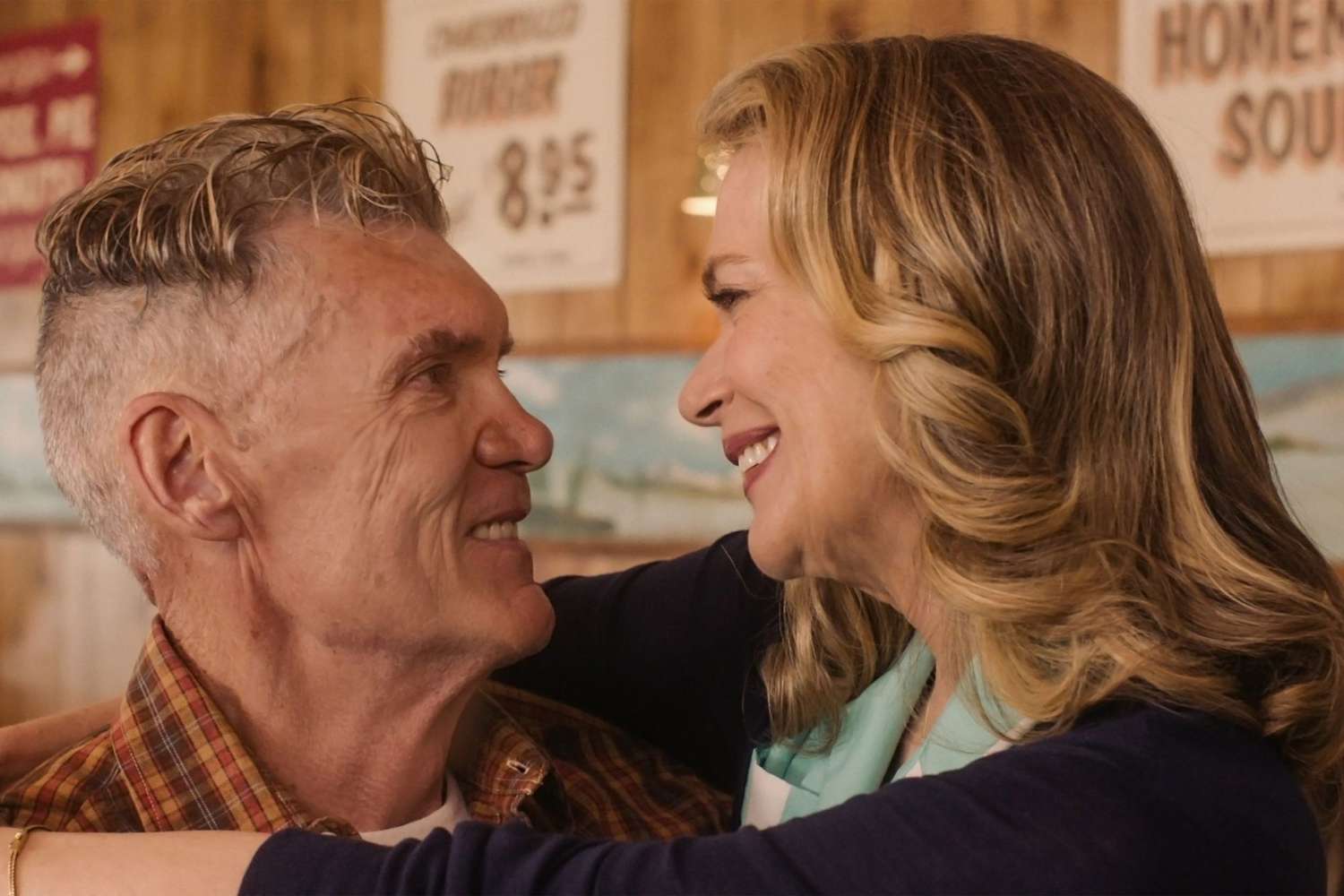Few Twin Peaks characters are as iconic as Margaret Lanterman, the Log Lady (Catherine Coulson). With her trusty log in her arms channeling cryptic pronouncements about owls and fire, Lanterman became a synecdoche for Twin Peaks’s gently surrealistic humor and mystical underpinnings. Not many took her seriously (except Hawk, of course), but she and her log always saw the truth behind the mystery.
And now, Lanterman is dead, taken by the same cancer that ended the life of the woman who portrayed her. Twin Peaks: The Return has been a lot of things, but its emotional weight has rested on Lanterman, and Coulson’s, shoulders. Her death in “Part 15” is perhaps the most moving moment of any iteration of the Twin Peaks narrative, and it is only fitting that David Lynch dedicated the episode not to Coulson (which he did back in “Part 1”), but to Lanterman herself. [...]
Coulson’s rail-thin body, post-chemo hair, and breathing tube have given Margaret an even deeper poignancy, as we know that she is not long for this world. Coulson gives the rawest of performances. Her illness cannot help but become Margaret’s illness. There’s barely any barrier between actor and performer.

That is what makes this final moment with Margaret so devastating. Margaret’s tears are Coulson’s tears, knowing that she is about to meet her end. When she says, “There’s some fear in letting go,” that could be Coulson talking with Lynch, a friend saying goodbye for the last time.
And it is all too obvious that this scene is Lynch and Coulson saying goodbye to one another. Lynch makes it achingly poetic, giving depth and texture to the dialogue he and Mark Frost wrote. He cuts from the end of the call to clouds covering the moon, as beautiful a symbol of death as has ever been committed to screen. [...]
David Lynch stared Catherine Coulson’s death right in the face, and she stared right back. This final moment is a love letter from one friend to another. It’s the only goodbye Lynch and Coulson would know how to say.

